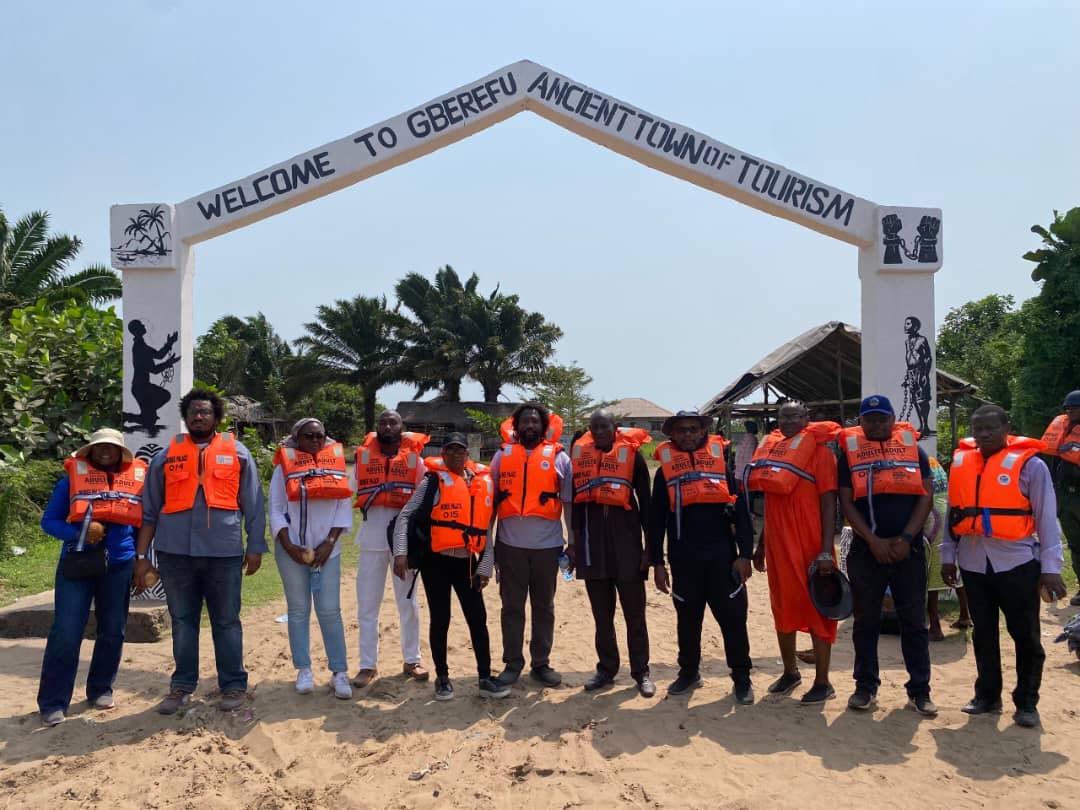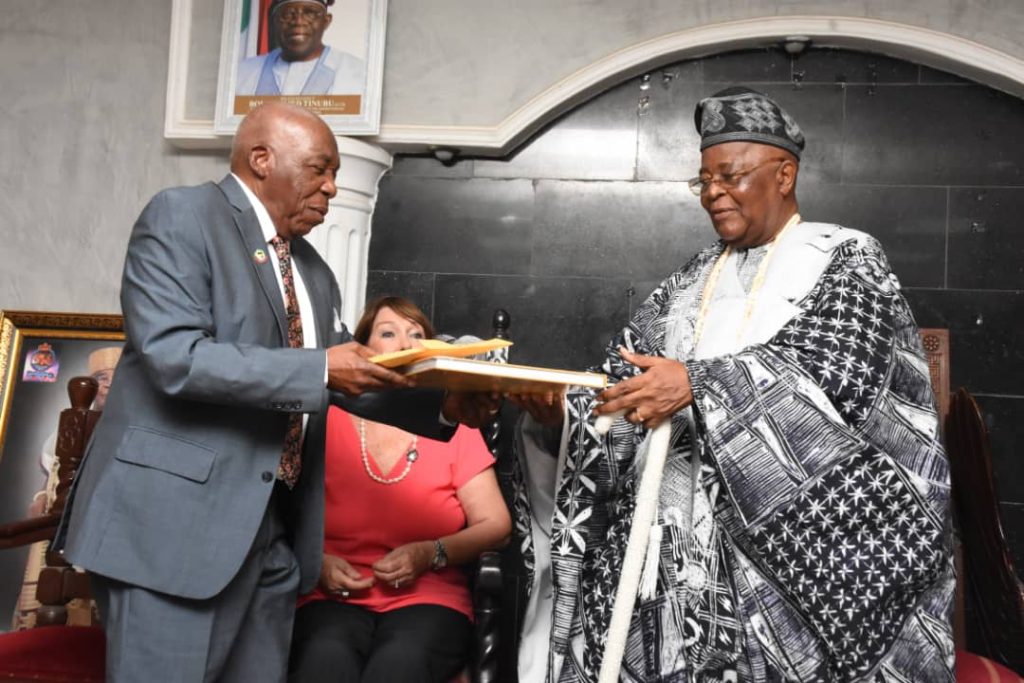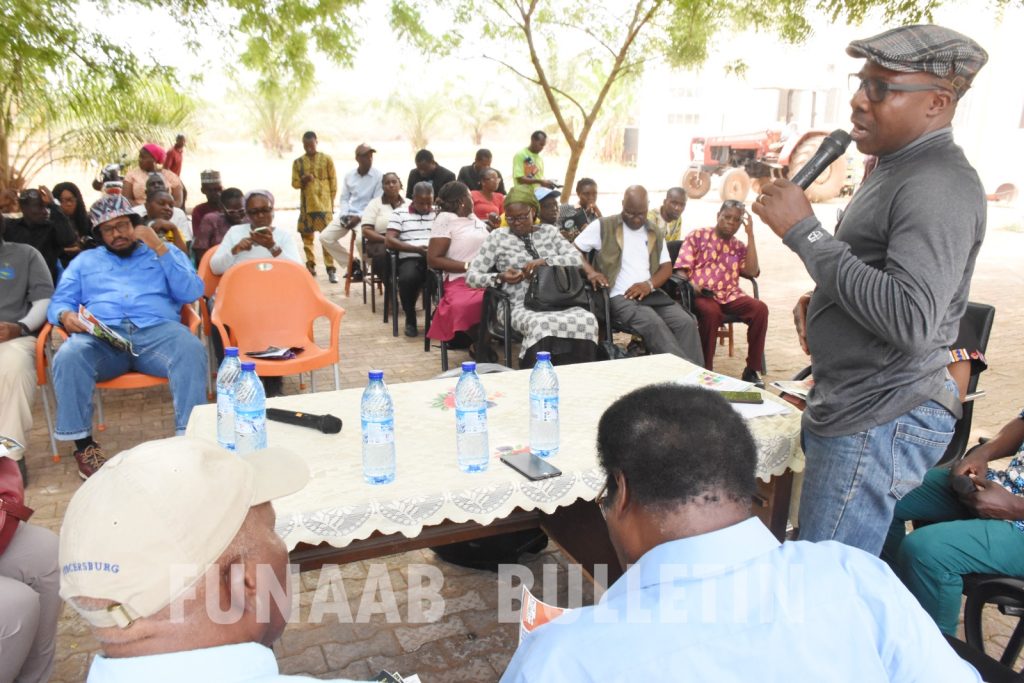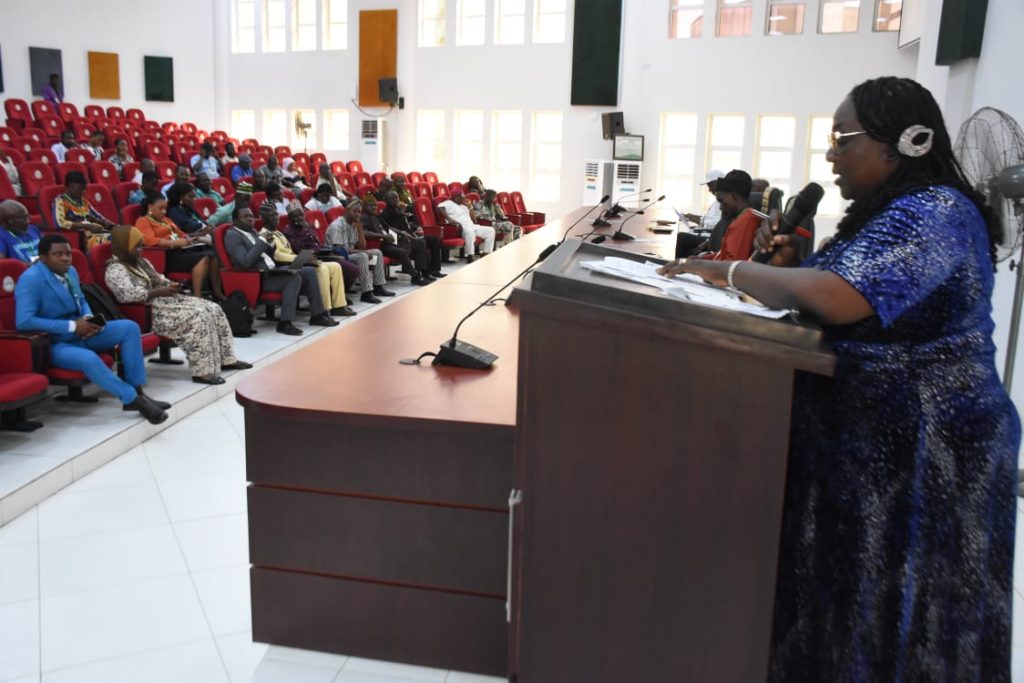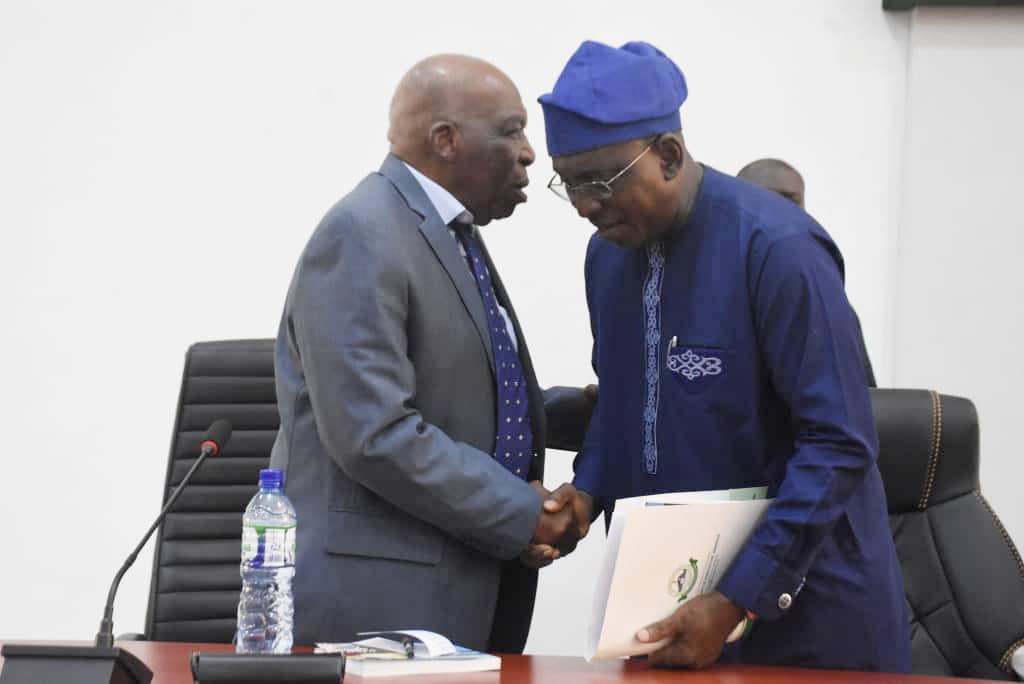Last Updated on February 18, 2025 by Olasunkanmi Olajide
By Olasunkanmi Olajide & Tofunmi Adebayo
In a profound journey to reconnect with their ancestral roots, a high-powered delegation from The Bahamas, visiting the Federal University of Agriculture, Abeokuta (FUNAAB), embarked on a historic tour of the Badagry Slave Route today, February 17, 2025. Led by select University officials, the delegation explored significant sites, including the Badagry Museum, Gberefu Island, and the infamous Point of No Return, gaining deep insights into Africa’s role in the transatlantic slave trade and its enduring impact.
The tour guide provided a compelling historical narrative, tracing the origins of the slave trade to the arrival of the Portuguese in 1445. The delegation learned about the inhumane conditions endured by enslaved Africans who were shackled with iron chains, subjected to gruelling labour for up to 18 hours a day, and stripped of their freedom and dignity. They visited the 1502 slave market, where up to 300 captives were sold per market day, and were shown dungeons where captives were confined before their forced journey across the Atlantic.
A key highlight of the tour was the Portuguese Well, which enslaved individuals were compelled to drink from, and was believed to weaken them and suppress any resistance. The delegation was also educated on the psychological and physical torment inflicted upon captives, including forced branding, memory erasure, and cruel restraints like neck and mouth chains. The guide further detailed the controversial roles played by some African chiefs in the trade and the brutal reality of enslaved individuals being made to fight against one another.
The visit also shed light on the abolition of slavery, particularly in Badagry, where Chief Mobee played a crucial role in ending the practice in 1888. Discussions covered the broader abolition movement, including the landmark 1807 treaty to halt the transatlantic slave trade and the historic 1791 slave revolt led by Toussaint L’Ouverture in Haiti. The impact of the triangular trade—connecting Europe, Africa, and the Americas was explored, highlighting its influence on global cultures, languages, and traditions, particularly in Brazil.
As the tour concluded, the delegation reflected on West Africa’s powerful civilizations before European intervention, discussing figures such as King Ghezo of Benin Republic, whose role in the trade remains a subject of historical debate. The experience left the Bahamian visitors with a deeper understanding of the resilience of enslaved Africans and the importance of preserving this history for future generations.
Author
-
Mr. Olajide is a seasoned professional with over a decade of expertise in the fields of Public Relations, Media and Communications. He currently holds the position of Assistant Director, Media.
View all posts

